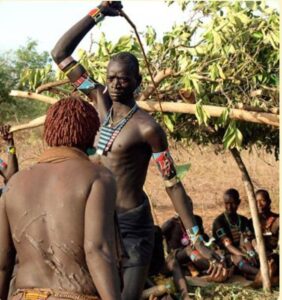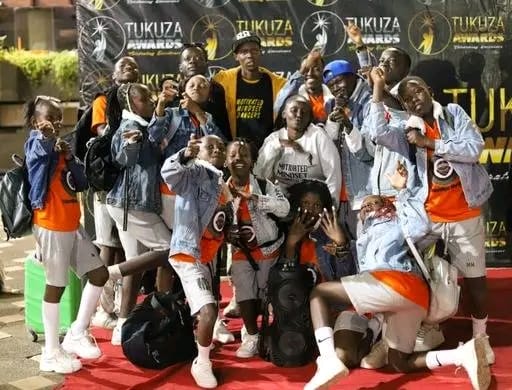An African adage that says, ‘In the place that is difficult, we meet a man,’ has proven its authenticity among the Fulani boys in the Sharo’s Festival, which portrays the Fulani’s culture and their belief system in the matter of “marriage.”
Historically, the Fulani people are considered the largest nomadic group in the world. They are also known as the Fulbe, who are predominantly in Western Africa, from Guinea, Senegal, Cameroon, and the Central African Republic, including Mali, Sierra Leone and Nigeria.
In Nigeria, they are predominantly Muslims and are particularly found in the Northern parts of Nigeria: Adamawa, Bauchi, Borno, Gombe, Jigawa, Kaduna, Kano, Katsina, Kebbi, Kwara, Niger, Plateau, Sokoto, Taraba, Yobe and Zamfara.
Like every other ethnic group in the world, they also have their customs and traditions they practice. The word “Sharo” means flogging.
Sharo Festival can be translated as ‘flogging Festival’. The festival rites aim at testing the endurance and strength of Fulani boys. It is also to confirm if the man has come of age and is matured to take a spouse. The festival is sometimes used to settle rival differences between two boys who are competing to marry the same girl.
Before a girl is handed over to a suitor, the two potential suitors must participate in a flogging competition, to convince the bride’s family and everyone present that he is capable of being a groom.
The intended groom will be accompanied by his family members and friends, who will motivate him to endure the brutal process by ensuring he does not show any expression of pain or even shed tears. If he does, he will be considered weak and would be disqualified and immediately rejected by the bride’s family.
The suitors are to maintain a firm posture throughout the process. The flogger is referred to as “Daban Kai or Bai.” The long -whip is known as “Firkee.”
The Sharo Festival tradition is held twice a year. The first celebration is held during the dry season, around the time when guinea corn is being harvested or about to be harvested. The time is selected because of the people’s belief that guinea corn would help them stay stronger and energetic during the Sharo Festival.
Guinea corn is considered to be one of the best energy given food. The second Sharo Festival is celebrated during the Muslims Sallah Festival- ‘Eid-el-khabir.’ The festival lasts for seven nights; one week, after the Muslims Sallah Festival.
Additionally, the festival is held in an open space like the field, market square and the village square. In most instances, it is often attended by prominent people both inside and outside Nigeria, especially the Fulani Nation.
A Fulani community leader who sought anonymity with The Africa Feature Network, shares that the Festival is not just about pain, rather, it is about discipline, endurance and demonstrating that you are ready to protect your family and community. The man shares his scars and experience with the cane.
“When I took the cane, I became a man. I learned to face adversity without flinching. That lesson has reminded me of the day I proved myself worthy to my people,” he said.
A Fulani elderly woman also commented that Fulani men who went through the flogging festival are more trustworthy and responsible, and can endure the challenge that comes with life.
“A man who has faced sharo is a man you can trust. He has shown he can endure. This builds respect within the community and ensures our lineage remains strong,” she proudly said.
After the festival, the surviving man from the flogs is honoured as a man, and is given the liberty to marry the girl who was the subject of the competition or any other girl of his choice.
Still proud of their unique culture, the goal according to the Fulani, is to showcase the cultural identity of the Fulanis and also to represent the significance of the festival, as well as the identity of the Fulani men, and the genesis of their moral standards.


